What are Probiotics and why you should add them to your diet.
What are Probiotics?
You have microorganisms, yeast, and also other microbes around your body, both inside and outside. Thankfully, a lot of those microorganisms are valuable microorganisms that execute crucial features for your cells, tissues, body organs, and body systems.
Probiotics and the beneficial microorganisms they support can assist by following issues
Boost your body’s immune system, enabling you to recover quicker from health issues and injury. - Avoid infection by quitting hostile bacteria from taking control of.
- Enhance your digestion, which permits you to better soak up nutrients from the foods you consume.
- Researchers found that a probiotic consisting of both Lactobacilli and Bifidobacteria helped to alleviate hay fever symptoms and improved quality of life during allergy season.
Most of the helpful germs in your body reside in your gut and also maintaining your gastrointestinal microflora healthy not only aids your digestion but likewise guarantees your body’s immune system is functioning appropriately.
These two systems are directly connected.
Consuming probiotics can restore this balance, which creates an obstacle against hazardous germs
Optimal balance of bacteria
Usually, the human body has an optimal balance of bacteria, however, there are certain lifestyles or medical factors that can create imbalances.
As a result, the disease-causing bacteria numbers can grow exponentially. Unnecessary use of antibiotics, gastrointestinal problems, surgery, taking PPIs, chronic stress, sensitivity to gluten, and even the standard western diet can cause such imbalances.
Luckily, there are ways to redress the balance of bacteria for better overall health and well-being. The best way is to include probiotics in your daily diet.
What Exactly Are Probiotics?
Probiotic is a term used to describe the live bacteria which are present in fermented foods and yogurt. They can benefit your digestive system by bringing the balance of the bad and good bacteria in your microbiome in alignment. This ensures you have a lower risk of suffering from many different medical conditions and diseases.
Probiotics can be derived from natural food sources such as kefir and yogurt, but they can also be derived from foods that have been enriched with probiotics as well as from specialist supplements. However, it’s usually best to get your probiotics from natural food sources.
Probiotics and Antibiotics
When you take antibiotics to deal with an infection, you not just get rid of the bad germs that are making you sick yet additionally the healthy and balanced, advantageous germs that can make you well.
When you take probiotics during and also after using antibiotics, you are aiding to restore the all-natural digestive tract microflora that your body needs rapidly.
This additionally can assist increase the performance of prescription antibiotics, which can help you feel far better faster as well as call for less and smaller sized doses of antibiotics in the future.
Are there side effects to taking probiotics?
Probiotics are usually safe, as well as any kind of negative effects are normally mild as well as short-term. However, if a symptom is triggering an issue, consider minimizing the probiotic’s dosage, attempting various strains, or stopping usage completely.
Consult a doctor regarding any type of serious or persistent side effects.
Possible side effects
Increased risk of infection
A study from 2017 recommends that kids and grownups with extreme diseases or endangered immune systems need to prevent utilizing probiotics.
Allergy risk
If you have an allergic reaction or intolerance for gluten, soy, eggs, milk, or lactose you might require to take caution when choosing probiotics.
Similar to any kind of supplement, you should always check ingredients lists to ensure that there is no risk of an allergy. Try using allergen-free probiotics.
Probiotics killers
- GMO foods
- Stress
- Sugar
- Alcohol
- Smoking
- Antibiotics
- Lack of exercises
- Inflammatory glutens
- Oversanitation
Probiotics take many forms and can be found in the following foods:
- Unpasteurized kimchi and sauerkraut
- Miso soup
- Enriched milk and soft cheese
- Sour pickles in saltwater
- Sourdough bread
- Apple vinegar
- Kefir
- Kombucha
- Yogurt
- Raw Cheese
These foods and beverages contain one or more of the following strains of probiotics:
- Lactobacillus acidophilus
- Lactobacillus casei
- Bifidobacterium bifidum
- Lactobacillus bulgaricus
- Lactobacillus gasseri
- Saccharomyces boulardii
- Lactobacillus plantarum
- Bifidobacterium lactis
- Enterococcus faecium
- Bifidobacterium longum
Any food that claims to have probiotics should contain at least one of the strains listed here. This is also true for probiotic supplements, so always read the label if you are in doubt.
Here are some of the most beneficial probiotic foods that you can enjoy every day:
- Yogurt – this is a top probiotic source since it contains milk that has been fermented by good bacteria such as bifidobacterial and lactic acid bacteria. Not only can yogurt boost your bone health it can reduce high blood pressure and relieve unwanted symptoms associated with IBS (irritable bowel syndrome). Not every type of yogurt contains probiotics, so you need to only choose yogurts with live or active cultures.
- Kefir – this probiotic fermented milk drink is made from goat or cow’s milk with added kefir grains. Again, kefir can strengthen the bones, help with digestive issues, and protect the body from infections.
- Sauerkraut – this is made from shredded cabbage which has been fermented with lactic acid bacteria. Not only is sauerkraut packed with fiber and vitamins; it also contains manganese, iron, and sodium as well as antioxidants that boost eye health. You need to make sure that the sauerkraut you’ve chosen is unpasteurized to experience its probiotic benefits.
- Tempeh – this product is made from fermented soybeans and is popular as a substitute for meat. The fermentation process means that you can absorb more minerals from tempeh. It is also a rich source of vitamin B12 while also offering probiotic benefits.
- Kimchi – this spicy, fermented Korean dish is usually made from cabbage which has been flavored with chili pepper, ginger, garlic, salt, and scallions. It also contains Lactobacillus kimchi which benefits your digestive health.
- Miso – this Japanese seasoning is made from fermented soybeans. Usually made into soup, miso is an excellent source of fiber and protein and is packed with plant compounds, minerals, and vitamins.
- Kombucha – This fermented green or black tea drink originates from Asia.
- Pickles – gherkins are fermented in salt and are an excellent source of probiotic bacteria which boosts digestive health.
- Buttermilk – traditional buttermilk is the liquid that is left behind after making butter. It contains probiotics as well as valuable minerals and vitamins.
- Natto – this fermented soybean product is like miso and tempeh which contains Bacillus subtilis. It is also high in vitamin K2 and protein.
- Some cheeses – although many kinds of cheese are fermented, they don’t all contain probiotics. Only those that have active and live cultures do. Cottage cheese, cheddar, mozzarella, and gouda are all good examples of cheeses in which the good bacteria survive the process of aging.
Wrapping up
There are many probiotic foods that you can add to your diet, however, if you dislike all of them, you could always try a probiotic supplement which can be taken daily to improve your overall health and well-being.

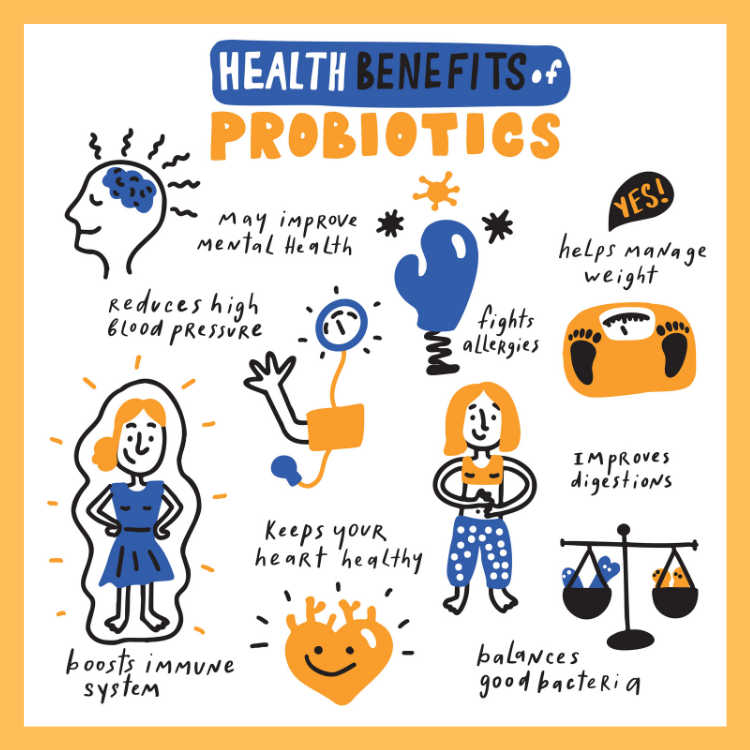
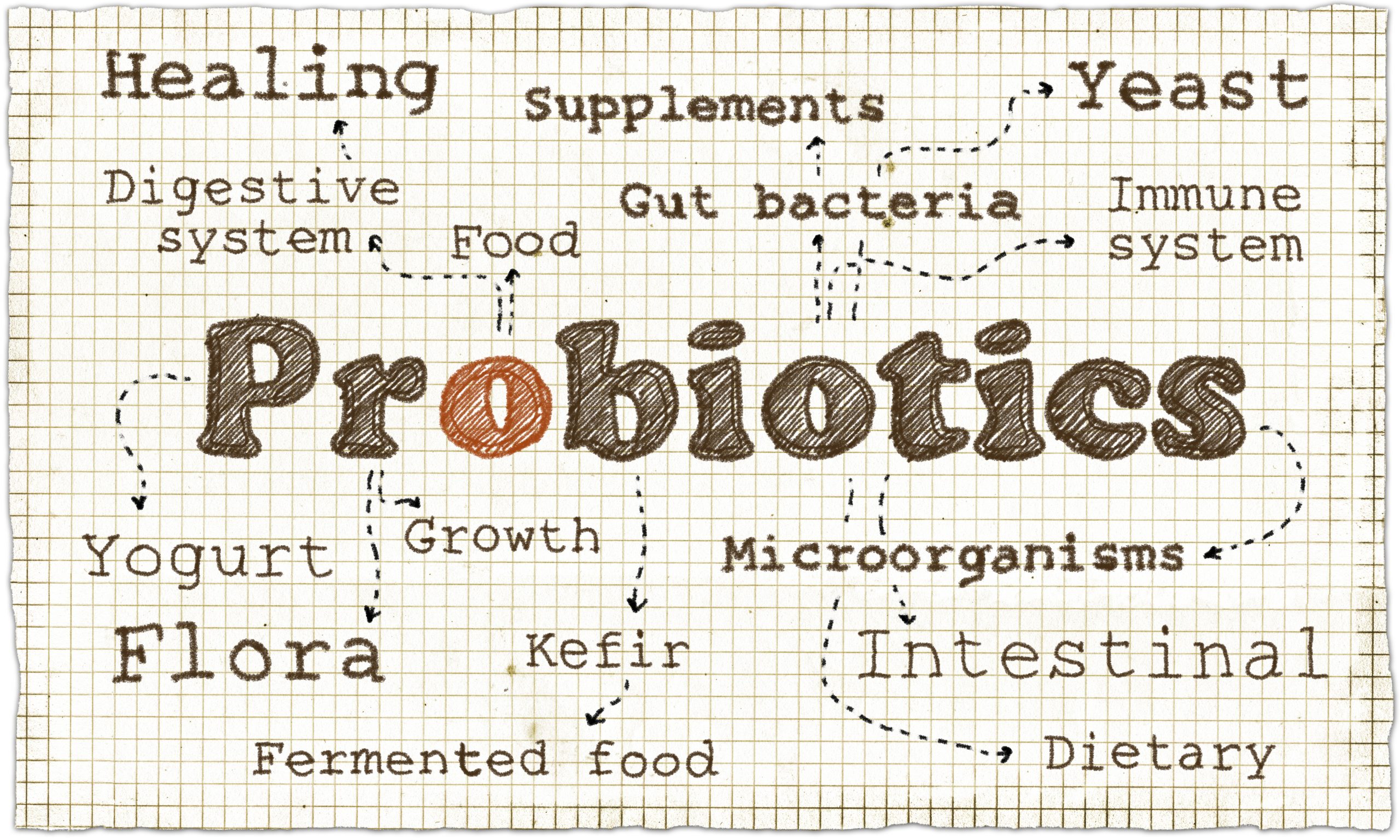
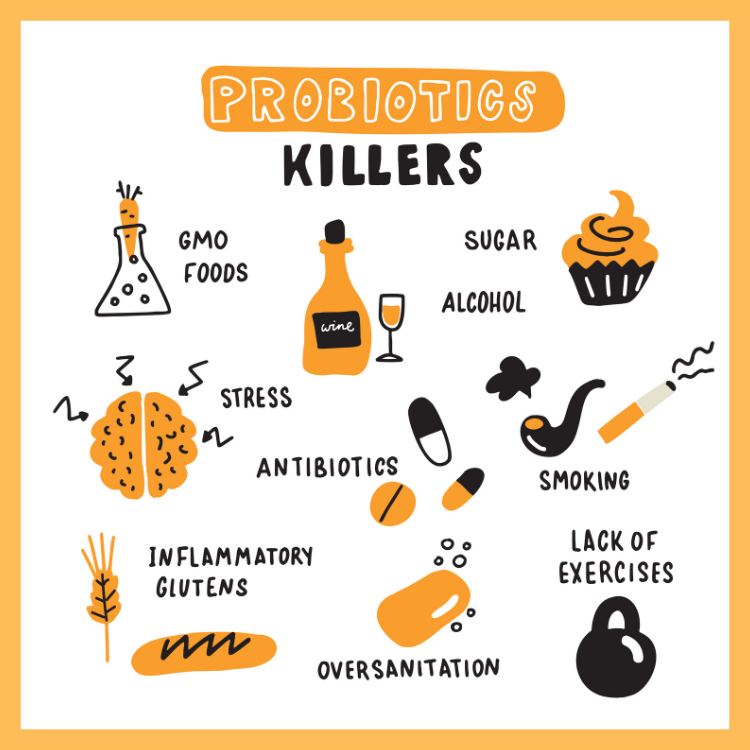
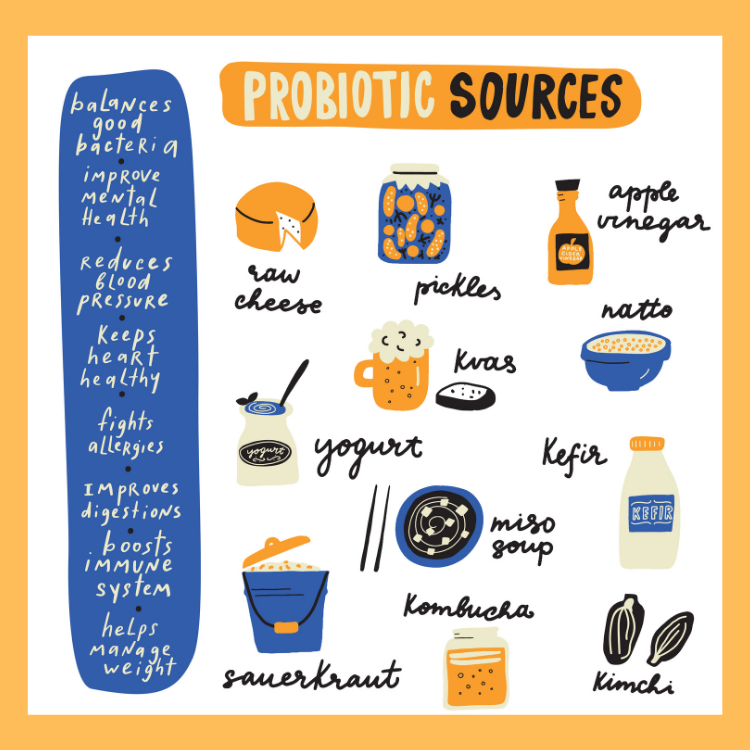
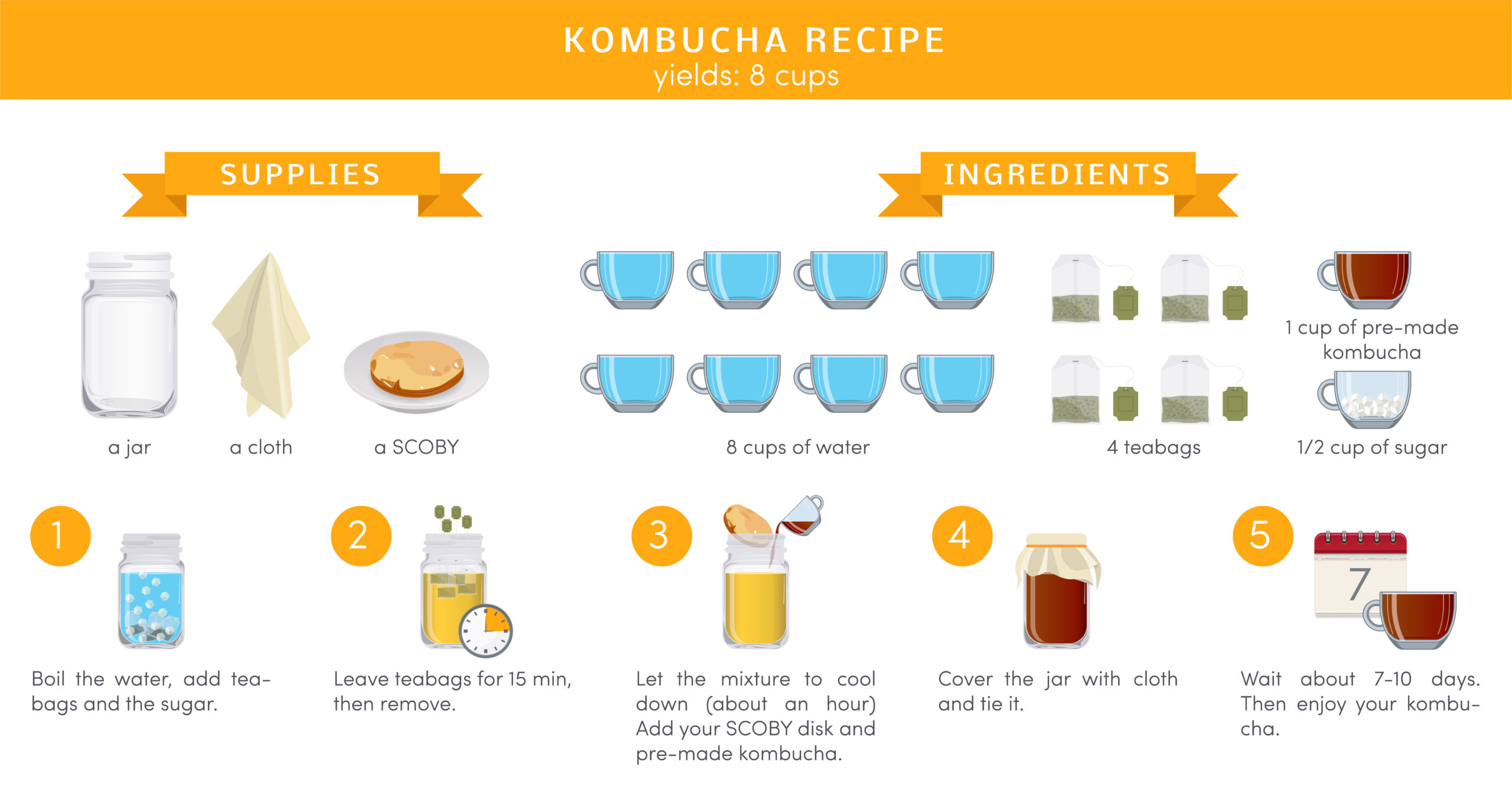
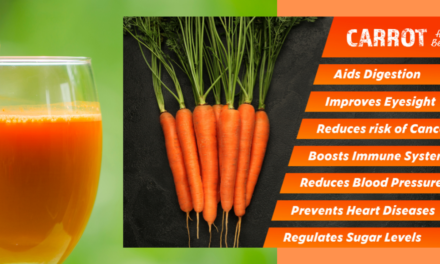
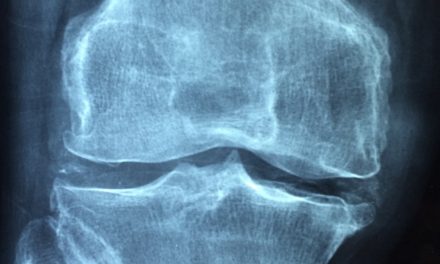

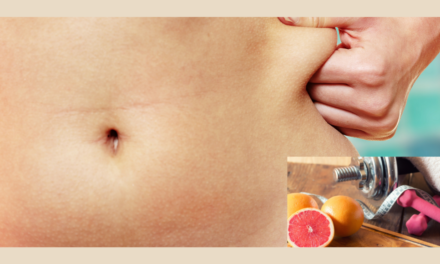
0 Comments
Trackbacks/Pingbacks